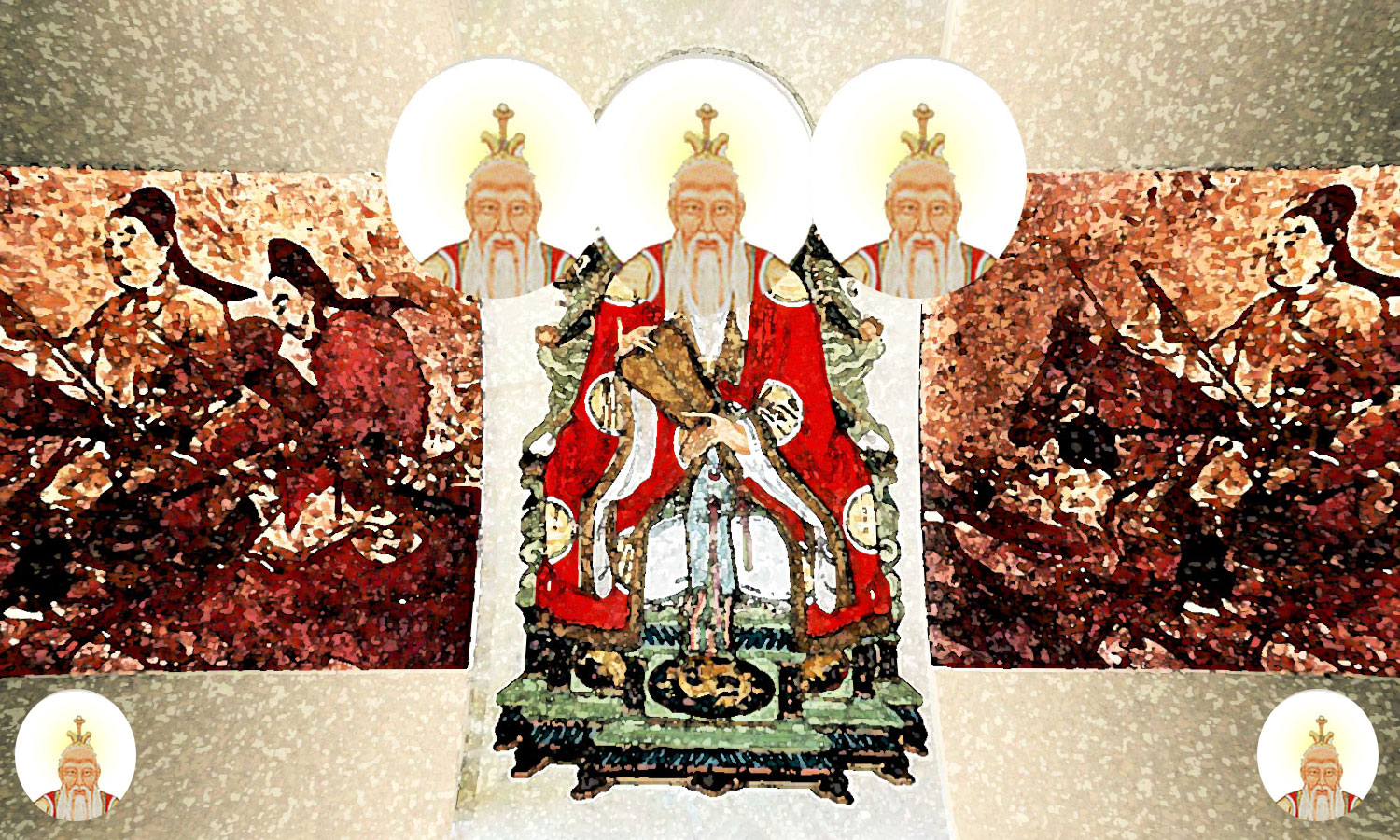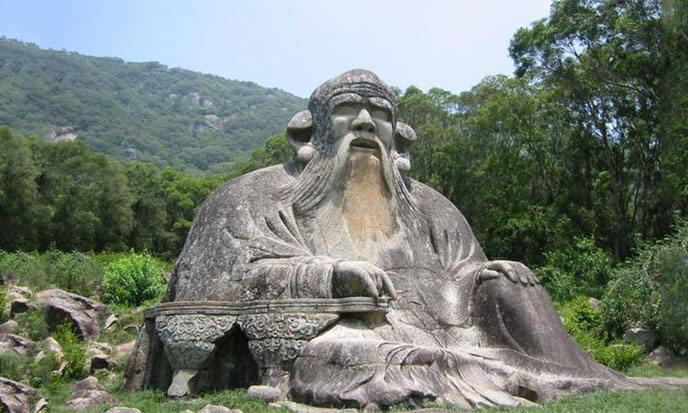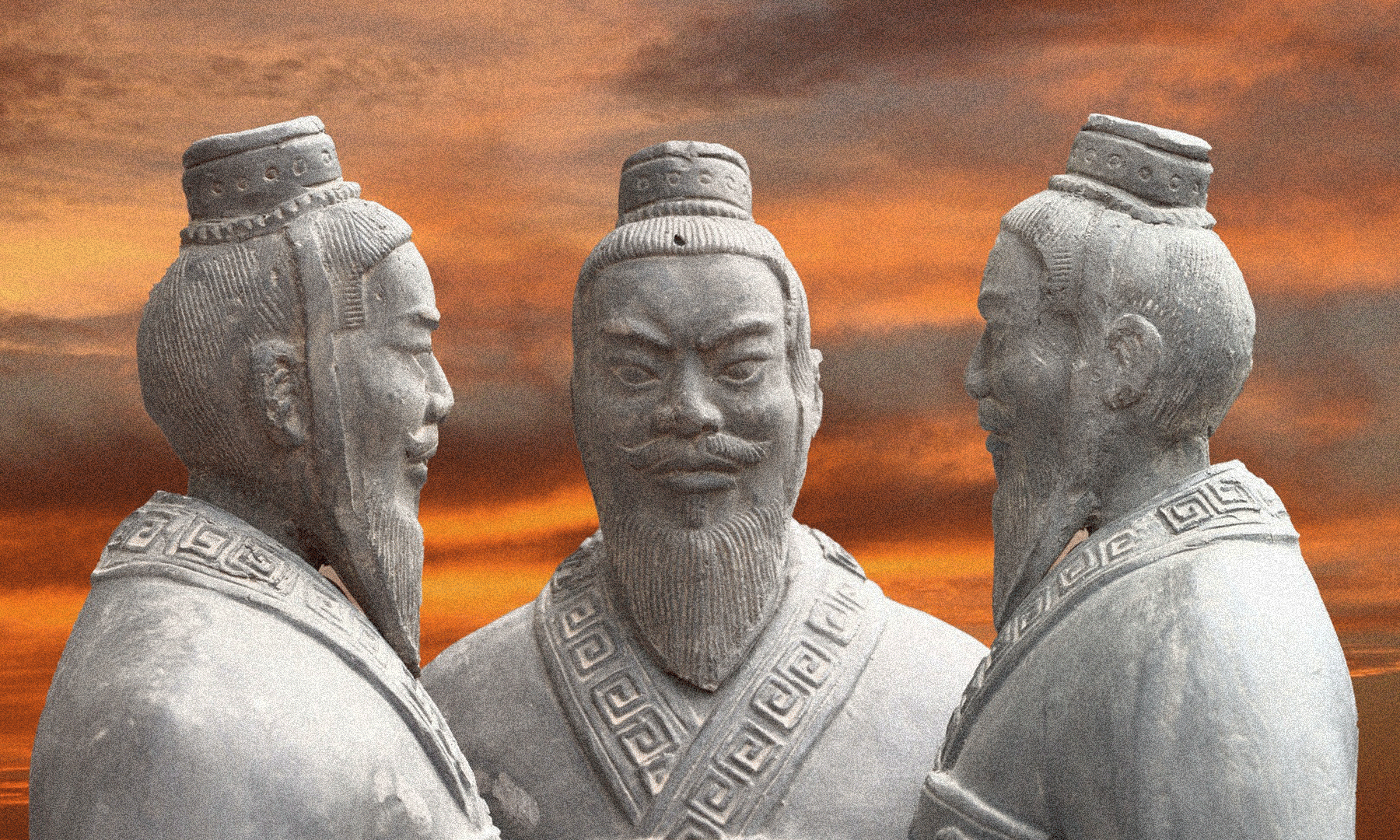
At the time of Buddha and Confucius, the sage Lao Tzu gives China a perfect philosophy. While Confucius teaches morals and good social behavior, Lao Tzu advocates a philosophy of action closer to Buddha’s teachings.
We have seen how Confucius conceives the relationship between individuals and society. Lao Tzu said: “Governs best who governs least. Knowing oneself is the only way to govern. Who does not govern himself can not govern others.” They both agree, which is rare. Because Confucius was more interested in social relationships, when Lao Tzu gives priority to self-control. Which comes back to the same anyway.
“If you want peace, waives the study” adds Lao Tzu. But he does not refuse the study by these words, what might think a quick reader. He is just warning that studying doesn’t mean peace of mind. The study is important because it leads to the knowledge of things and therefore of yourself. For knowledge, i.e. study, will bring peace of heart – according to Confucius. I agree completely. “I’ve never had a grief that an hour of reading hasn’t dissipated” wrote Montesquieu. No doubt he has had only minor troubles.
However, the reading is sometimes the most beautiful counterpoint to the loneliness of the spirit. I use it thoroughly, finding in their works companions in my heart. “Intelligent people know others. Enlightened people know themselves. You can conquer others with power, But it takes true strength to conquer yourself. Ambitious people force their will on others, But content people are already wealthy. Prudent people will abide. People unconquered by the idea of death will live long. People who die and do not perish enjoys eternal youth.” (Source)Lao Tzu, Tao Te Ching, Chapter 33
How can you die without perishing? A small mystery indeed – where one can recognize the Templar adage: “If you do not die in your lifetime, you will die in dying.“
Despite the major changes called life and death, the nature of the wise man preserves his purity so he will not perish. The perfect men of antiquity have escaped the changes of life and death. These ancient people had the perfect spirit – they were awake. When he is awake, the sage looks at life and death as the morning and evening of the day. He exists and does not come to life, and he died and did not die. This is the real youth, the only worthwhile everlasting life.

载 营 魄 抱 一,能 无 离 乎 ﹖
Does the soul can embrace the One and never leave Him?
Mind! The One is not God or any spirit. Lao Tzu said : “I do not concern myself with gods and spirits either good or evil, nor do I serve any.”
专 气 致 柔,能 如 婴 儿 乎 ﹖
Can we, by cultivating our Qi, become as flexible as a newborn?
涤 除 玄 览,能 无 疵 乎 ﹖
Can we, by purifying, by probing, become flawless?
爱 民 治 国,能 无 为 乎
Can we take care of the people and administer the state while practicing non-action?
天 门 开 阖,能 为 雌 乎 ﹖
Can we, facing the heavenly gate, proceed with the impassibility of the woman?
明 白 四 达,能 无 知 乎。
Can we, filled with knowledge, practice non-know?
生 之,畜 之,生 而 不 有;
Give birth and raise without notion of property;
为 而 不 恃;长 而 不 宰,
Realize with no expectation, guide with no claim
是 谓 玄 德。
This is the mysterious virtue (source)
♥
Since I put under the protection of the great sage, I must hasten to say nothing if I want to be of any help for my sisters and brothers.
For Lao Tzu said:
Those who know do not speak and those who speak do not know. The wise teaches by his actions and not by his words.



